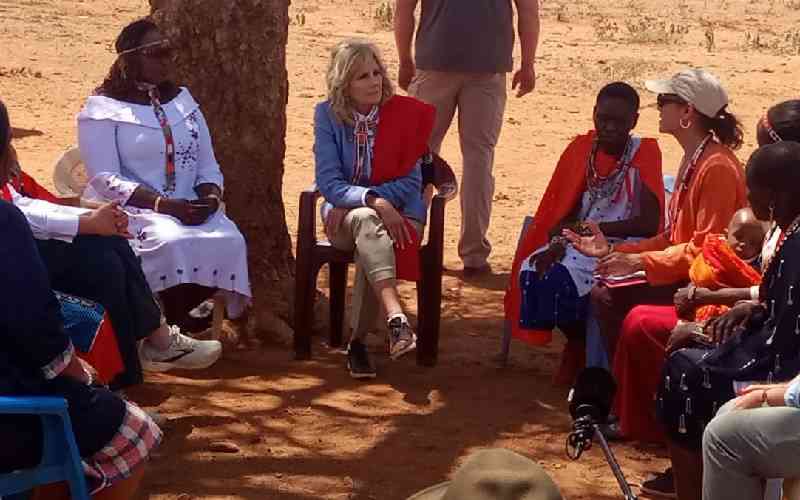×
The Standard e-Paper
Fearless, Trusted News

Kenya is experiencing the worst drought that it has in decades, and as a result, the final and longest stop by US First Lady, Dr Jill Biden, was in Kajiado County today.
Accompanied by US Ambassador Meg Whitman and EAC CS, Rebecca Miano, Dr Biden was greeted by groups of children singing, then by Maasai women in Lositeti village, after which she was welcomed by Kajiado governor Joseph Ole Lenku and Maasai elders.